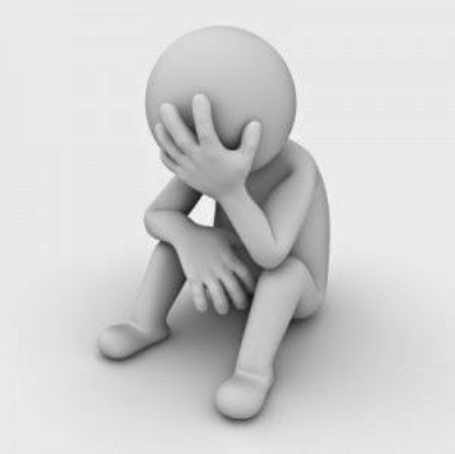Three Ways to Enjoy the Sounds of Summer
As Kenny Chesney would say, summertime is finally here! That means the sun is shining and everyone will be spending more time in the great outdoors. It’s the prime time for attending outdoor concerts, parades, fireworks, festivals and sporting events. Of course all of these events are fun, but remember you are susceptible to hearing loss due to the loud noises. Hearing loss caused by loud noises at summer events can be permanent and non-reversible. Protecting your hearing may be the last thing on your mind, but there are some easy ways to prevent hearing loss.
1. Bring Ear Protection
Would you go to the beach without bringing sunscreen, or ride your bike without a helmet? I don’t think so! Stash a few pairs of earplugs in your purse/backpack or in your car ahead of time, so that when the time comes for a fun outdoor activity with probable noise, you’ll be prepared!
2. Walk Away
If for some reason you forgot your earplugs at home, simply walk away. Keep a safe distance from the loud speaker blaring this summer’s top hits, or the drummer who is really into his solo. Keep at least a 25ft or more between you and the noise source.
3. Limit Yourself
Try to limit the time spent. You get to a concert with your friends and it’s much louder than expected. You could tell your friends you have to leave early or just arrive fashionably late to shave off some time. Or give your ears a break by retreating to a concession stand or going to the restroom. Prolonged exposure to loud noise could cause permanent damage.
According to the NIDCD (National Institute of Deafness and other Common Disorders), hearing loss can be caused at 85 decibels or more. To put this into perspective, here are some examples of common sounds you may experience during summertime fun:
- 120dB – Concert/ Sports Game
- 130dB – Fireworks
- 140dB - Firearms
- 88dB – City traffic
- 90dB – Lawnmower
- 97dB – Motorcycle
- 100dB – iPod/ iPhone
Breaking the Silence
Do you know someone who used to be the first to jump on the idea of going out with friends or attending a get-together but now, they seem to shy away from the idea? Don’t be too hard on them, as they may be suffering from hearing loss. Hearing loss is an invisible disability that can really take a toll on someone’s well-being and self-esteem if untreated. People may be too nervous or embarrassed to go out, or experience high levels of anxiety from not being able to hear well. This can lead to social isolation which can eventually lead to depression if unattended for too long. Depression affects more than 15 million adults in America and goes hand in hand with hearing loss.
Here are some ways to help you or someone you know:
Speak to an Audiologist
This is the first step you should take, Contact our office to get the professional help that’s needed. It is critical to treat hearing loss as soon as possible so that the depression does not escalate into something more serious such as dementia or mental decline.
Stay Positive!
Yes, it may be a difficult situation but keep a positive attitude and it will help your overall well-being.
Emotional Support
If you know someone who has been avoiding social settings due to hearing loss, be there for them. Try to understand what they are going through instead of questioning why they may not be as engaged as they once were.
Stay Engaged
Encouraging someone to stay engaged is very important. Start off with small gatherings to get their confidence up before diving into large crowds.
Be Aware of Hearing Nutrition
Believe it or not, foods rich in B12 and Folic Acid can aid in keeping your hearing in tip-top shape!
Product in the Spotlight: Ditto
Common Jobs Linked to Hearing Loss
Another day, another dollar, another way to be susceptible to hearing loss. Who would have thought that your everyday job could potentially be putting you at risk for hearing problems? Yes, you heard that right. Aside from a loud concert on the weekends, your JOB could also be putting you in jeopardy!
There's an App for That
Tinnitus: What is it?
Have you ever experienced an annoying ringing sound in your ear? People will often experience this sensation after a concert, which is just short term, but others experience it all the time. This annoying ringing sound is known as Tinnitus, more commonly called ringing in the ear, can also occur in the form of buzzing, clicking or hissing. It can be caused by an exposure to loud noises such as heavy equipment, loud iPod volumes, firearms, or concerts. It can also be caused due to a head injury, ear wax blockage, excessive smoking, age, or inner ear cell damage. Inner ear cell damage is caused when the delicate hairs in the cochlea are disrupted whether from head trauma or exposure to loud sounds.
Common Types of Tinnitus:
Subjective
This type of Tinnitus is the most common among those who suffer. Only the person experiencing can hear the ringing.
Objective
This type of Tinnitus is rare, but is still heard. It is caused by involuntary muscle contractions in which the ringing can be heard by an outside observer, such as a doctor.
How to Cope:
Unfortunately there is no cure for Tinnitus; however, there are some ways to minimize the effects of it!
Ignore it
Yes, we know this is difficult, but instead of paying attention to the ringing sound, focus your attention on other things to take your mind off it. After a while, you will get used to it and it will not be as bothersome to you.
Sound Therapy
Some people may choose to take advantage of sound therapy. This essentially is a session in which the patient will mask the ringing sound caused by Tinnitus with low levels of background or white noise. It directs the attention off of the ringing onto something else.
Healthy Lifestyle
Living a healthy lifestyle is a key factor that you can control to help ease the discomfort of Tinnitus. Eating right and exercising regularly can go a long way!
If you or someone you know may be experiencing Tinnitus, stop by one of our offices today for a consultation and guidance on how to ease the discomfort.
Five Easy Ways to Protect Your Ears
Do you recall those glares you would get on those days driving around with your friends, windows down, music blasting and not having a care in the world? Those were the days. However, you may now be having some “Shoulda, coulda, woulda” thoughts when thinking about how you probably should have turned down the volume to a safer level in regards to your hearing. Although you cannot go back in time, it is better late than never to be aware of and protecting your hearing. Not only will you do yourself good, you’ll also set a good example for younger generations. Here are some easy ways to protect one of the most important of the five senses, your hearing.
1. Protect Yourself!
Noise Induced hearing loss is 100% preventable if you take the correct precautions.
This includes taking measures such as:
- Wearing hearing protection at loud events (ex. Earplugs)
- Limit your time spent near loud noises
- Turn down the volume
- Walk away and leave a significant gap between you and the source of sound
2. Get Screened
Being proactive in your own health is an important step to preventing hearing loss.
Getting a baseline test is a great way to be able to track your hearing and treat any
impaired hearing you may potentially have. Taking steps to prevention is critical so that symptoms do not worsen.
3. Eat Right!
Foods rich in the vitamins and minerals such as Vitamin A, Vitamin C, Folic Acid,
Magnesium and Omega-3 Fatty Acids all significantly aid in protecting the inner ear.
Some examples of foods that contain these small health gems are: broccoli, salmon,
potatoes, apricots, bananas, oranges and tuna.
4. Avoid Head Trauma
Believe it or not, injuries to the head can cause hearing loss if the inner or middle part
of the ear are impacted. Although the cochlea is housed in the skull and is typically fairly well protected, any trauma to the head does put it at risk.
How to Protect Yourself:
- Wear a seatbelt in the car
- Wear a helmet while riding a bicycle
- Wear a helmet while engaging in contact sports
5. Exercise
Investigators suggest that those who engage in aerobic exercise on a regular basis are
less likely to suffer from hearing loss. Exercise allows the nerves in the body to be more productive and stimulated, including in the cochlea. So get up off your sofa and
exercise; remember, some is better than none!







